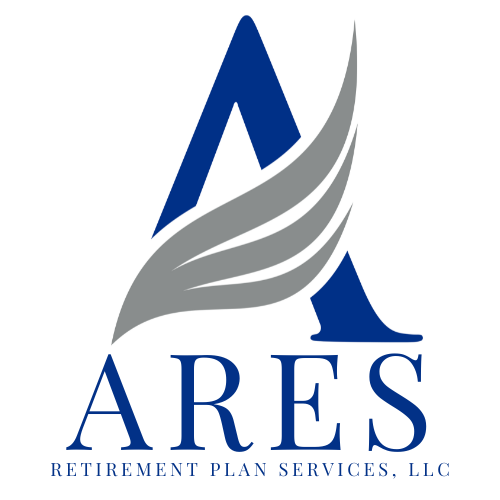FREQUENTLY ASKED (k)UESTIONS
Large corporations and small businesses alike find that offering a 401k plan to their employees is a good way attract and retain top talent to their company and provide their employees with an opportunity to save money for their retirement. Third-Party Administrators provide essential services to help business owners administer and manage their 401k plans and the reporting requirements for them.
Frequently Asked (k)uestions
As an Employer or Qualified Retirement Plan Advisor what (k)uestions should you be asking?
-
What is a TPA or Third-Party Administrator for a 401(K)?
TPAs, or Third-Party Administrators, help employers manage 401(k) plans and other employee retirement plans. A retirement plan TPA like ARES Retirement Plan Services, LLC will collaborate with you on the design and administration of your employee retirement plan and help you fulfill your tax obligations as the employer while identifying potential tax benefits.
An experienced plan administrator will take over administration tasks including vetting your plan, annual compliance testing, managing employee contributions and employer contributions, discrimination testing, and preparation of tax forms and other legal documents. It is their job to keep the plan in compliance while managing day-to-day plan operations.
401(k) administration has complex rules, including cross-checking eligibility requirements, meeting all disclosure requirements, and understanding clients' tax liability. Administrators should also conduct an annual plan audit.
-
What are some of the specific duties of a TPA?
While not an exhaustive list of TPA duties, here are a few of the specific duties a TPA might perform:
- Restating and amending your 401k plan document
- Preparing employee benefit plan statements
- Conducting annual plan testing to gauge compliance with IRS and DOL requirements, including participant contribution levels and non-discrimination requirements
- Calculating vested percentages for plan participants
- Completing Form 5500 to satisfy ERISA reporting requirements for employee benefit plans
- Approving plan withdrawals and loans
- Preparing an annual plan census
-
How do the roles of a TPA and 401k recordkeeper differ?
It is easy to confuse the roles of the TPA and 401k recordkeeper.
Think of it this way:
- The TPA is responsible for the big-picture creation and administration of your retirement plan
- The 401k recordkeeper is responsible for tracking contributions, deductions, and other specific financial aspects of your retirement plan
The 401k recordkeeper’s duties include:
- Logging employee and employer contributions to the 401k plan
- Tracking employee investments and returns
- Processing loans and withdrawals from the 401k plan
- Providing basic customer support to the plan’s enrollees
Remember, a TPA, can advise you on 401k plan design and regulatory compliance. A 401k recordkeeper is not allowed to advise on 401k plan design and regulatory compliance
-
Do You Need to Hire a 401k Administrator?
If your company is small and your plan has fewer than 100 eligible participants, you can file your Form 5500 as a small plan. That means you will not be required to submit a 401k plan audit with your filing, and you may not need to hire a 401k administrator.
There are however some significant benefits to hiring a 401k administrator. For example, TPAs have:
- Extensive knowledge of financial management and taxes, so they are ideally suited to advise small and large businesses about the structure and administration of their 401k plan
- TPAs are knowledgeable about investment strategies
- TPAs will be able to guide your employees through the process of choosing their investments, understanding asset allocation, and more
- TPAs can relieve you of the burden of handling the day-to-day administration of your 401k plan, leaving you free to focus on other aspects of running your business
- TPAs will help you adhere to all regulatory and tax requirements, minimizing the chances that you will be required to pay late fees
- If you are required to submit a 401k plan audit with your Form 5500, the TPA can help you prepare for the audit and conduct the audit itself.
At ARES our recommendation is to hire a 401k administrator. We know all too well that designing a plan is time-consuming and it’s easy to make mistakes that can lead to potential compliance or discrimination issues. Our objective is to work with you to design a plan that’s fair for both you and your employees.
To learn more, contact ARES to discuss a benefits program designed and administered around you and your needs.


